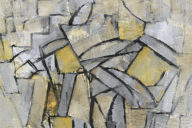We’re back with a new issue. Ba da boom. We planned on one big feature for the issue which didn’t pan out. It was to be an interview with our friend Corey Robin on the course and the consequences of this election. He decided he couldn’t do it because he was too depressed and bewildered by the results. We know how he feels, but we got a deadline.
Our lives are saturated in politics, but not just because this is one of those quadrennial years, and not just because the news media raise their ratings or increase their clicks by “balanced” coverage, blatant bias—the New York Times was as bad as FOX News—and breathless commentary.
We’re all talking or rather feeling politics all the time because we know, somehow, with or without a good education, and whether or not we vote, that we’re deciding the future of the so-called welfare state. We also know, somehow, with or without a good education, that every American has a personal, vested interest in the outcome, but also that our collective decision on this future will determine the shape of the future elsewhere, probably everywhere. So the political is personal. No wonder we feel this election result in our bones—and ache accordingly.
What about those transfer payments that now constitute 20 percent of all household income? Medicare, Medicaid, Social Security . . . ? Can you survive without them? Can we? Can our parents and our children?
It’s a strange moment that countermands the pieties of both Left and Right. We have no doubt that Paul Ryan will try to do what he says he wants to—dismantle Medicare. We also have no doubt that he will meet the same kind of political resistance George W. Bush faced when he tried to privatize Social Security, even though the Democrats are in disarray and in denial. We have no doubt that the president-elect’s chief strategist is a Leninist who wants to establish Republican rule by creating a clientele among the unemployed white working class voters who, by the way, didn’t desert Hillary Clinton.
Is Stephen Bannon, that strategist, a fascist? Quite possibly. Is that what we’re in for? Stay tuned.
But the question for the Left that is larger than the Democratic Party is, then, what is to be done about the decomposition of capitalism? How to think about its future when even its most articulate defenders can think of nothing better to do about the current crisis than eviscerate the welfare state and exacerbate the problem of income inequality by retreating to 19th-century shibboleths like Say’s Law or the gold standard?
***
Issue # 6 is an eclectic mix of politics and letters. We’re all over the place, and I do mean all over: space, our location in time, seems to have seized our contributors’ imaginations.
Avi Alpert notes that world literature still lacks a commensurately global philosophy. Following but also questioning Edward Said in writing the history of literary connections as created and enforced by imperialism, Alpert wonders about the geography of theory—“where philosophy gets embedded into the narratives of everyday life.”
Chloe Haralambous reports from the island of Lesvos on the so-called refugee crisis, which she suggests, in keeping with the German siege of Greece, is a larger, European crisis. She was there to demonstrate solidarity with exiles and emigrants who were being departed by government officials; watching this spectacle brought her to the point of thinking we’re all immigrants now—transitive subjects, not refugees.
Anastatia Curley enlists Ato Quayson’s “circuits of spectatoriality” to probe the possibility of authenticity in novels by Sheila Heti, Rachel Cusk, Ben Lerner, and Karl Ove Knausgaard. Under “mediated capitalism,” at what distance can we place ourselves from the transcription of everyday life that Facebook solicits? What forms of solidarity do these novels posit, if any? Are they self-help manuals in the guise of fiction?
Minou Ardoman asks related questions in explaining the genre of the TED talk and its rhetorical affinity with Donald Trump’s astonishing speech acts. Here, too, the unfeigned authenticity of the typical TED talker actually produces cognitive distance, an alienation effect, Ardoman argues, that amounts to the commodity fetishism of ideas.
Like Haralambous, Neil Hertz reports from a place where migrants and exiles have been created by government policy, in this case the Israeli division of Jerusalem and the consequent flight of officially “permanent” Palestinian residents to beyond the barrier, where their living standards are much lower, and where there is no municipal authority to inspect the new construction. The “cleansing” of Jerusalem turns out to mean the export of garbage and malfeasance to the East.
Michael Rubenstein reviews Ingrid Barrington’s Networks of New York, emphasizing her attention to the “illicit invisibility” of digital infrastructure, particularly the ubiquitous surveillance apparatus that convinces us that, of course, we are being watched, just like Edward Snowden said. In New York, Rubinstein shows, we live inside one large computer.
Richard Dienst enlists Jean-Luc Godard to argue that seeing is a capacity that might well be disabled by the “scriptural authority” of reading, and that showing what you’ve seen is the practical way of knowing what you’ve seen. The oddly exciting moral of the story he tells here is contained in the Godardian notion that seeing is socialism because we’re no longer looking upward for a higher power to validate our reading of each other. It’s just us on the horizontal axis of the open road.
John McClure returns us to the Spanish elections and the ongoing evolution of Podemos. He illuminates the choices the voters face with exact attention to their origins in previous left parties and movements, and their implications for the impending Left, there as elsewhere. The question, as always, is the form and content of social democracy. Can it survive the resurgence of radicalism as well as the unresolved crisis of the EU?
Rosanne Currarino revisits “business unionism” under the aegis of the American Federation of Labor as led by Samuel Gompers from 1882 to 1924 (with a brief hiatus 1892-94, when he was ousted by a socialist insurgency). Gompers was often asked what the labor movement wanted. He always answered “More.” Unlike almost every other historian of labor, Currarino demonstrates how complicated, expansive, and subversive that idea was.
James Bruggeman offers what we hope is an installment in a memoir. The sere Montana landscape seems to shape every sentence, all the words that stand in, for now, for these real people who have lived in this unforgiving place. He reminds us that our environs, whether political or natural, somehow seep into us, as if every external detail of our waking hours is a vibrating pitchfork that makes our teeth buzz.
Joe Amato, a language poet like Bruce Andrews, gives us a hilarious, epic poem made of found words, linguistic detritus. We can’t say anything more about it, for fear of appropriation next time.






No Comments